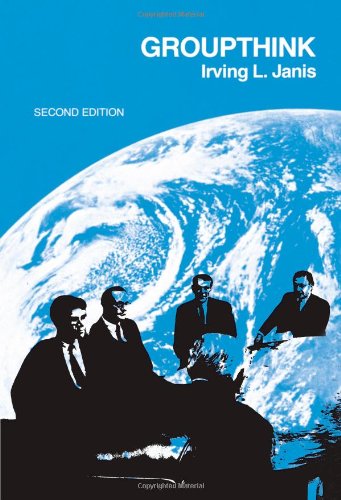 Babbittry’s an old word but hardly a dead concept. It first emerged — by that name, anyway — 90 years ago with the publication of Sinclair Lewis’s Babbitt, a slim, strange novel that drifts through its chapters with little thought to plot. At the heart of the novel is George F. Babbitt, a real estate salesman in his mid-40s whose life revolves around his family, dinner parties, boosters’ club, his business ambitions, and all the middlebrow fashion concerns of his age in the fictional neighborhood of Floral Heights in the equally make-believe town of Zenith.
Babbittry’s an old word but hardly a dead concept. It first emerged — by that name, anyway — 90 years ago with the publication of Sinclair Lewis’s Babbitt, a slim, strange novel that drifts through its chapters with little thought to plot. At the heart of the novel is George F. Babbitt, a real estate salesman in his mid-40s whose life revolves around his family, dinner parties, boosters’ club, his business ambitions, and all the middlebrow fashion concerns of his age in the fictional neighborhood of Floral Heights in the equally make-believe town of Zenith.
Lewis showcases Babbitt’s morning routine: “Last, he stuck in his lapel the Boosters’ Club button. With the conciseness of great art the button displayed two words: ‘Boosters — Pep!’ It made Babbitt feel loyal and important. It associated him with Good Fellows, with men who were nice and human, and important in business circles. It was his V.C., his Legion of Honor ribbon, his Phi Betta Kappa key.”
See how society weighs on this poor soul? Babbittry refers to the disease of conventionality and banality. The novel traces its way through the title character’s colloquial phrases, his fretting over social etiquette, and his laundry list of goals and frustrations. It’s the American dream at its most mundane, the inertia of the lifestyle a constant palpable anvil. Ultimately the sin of Babbittry relies on the social mores and manners of others — Babbitt doesn’t have a strong enough sense of his own self to defy that broader socially constructed set of values and meaning. The diagnosis of Babbittry entered our lexicon and stayed for a half century or so before fading away.
But what of the disease itself? The world George Babbitt inhabited changed radically in the nine decades since Lewis released his book. The United States engaged in wars, built highways and the Internet, embraced mass media and organic tomatoes, found drugs and the sexual revolution. Through our 21st-century lens, Babbitt looks all the more like a stuffy philistine dad. Lewis’s insights into human nature weren’t, however, limited by time, and we’re all guilty of Babbitt’s crime perhaps more now than ever before.
In 2012, social media thrives more than any 1920s booster club did. Millions engage in a bustling, active world in which not only can’t a person be alone, but dozens see and watch and, crucially, expect every day. One overriding criticism of the social soup of the Internet is the tendency toward groupthink. Once a few loud voices establish a joke or a premise, the herd follows. Binders of women! Bayonets! Chuck Norris as Superhuman! KONY 2012! A viral sentiment must be true, yes? This candidate completely botched the foreign policy debate questions. This politician is shady because of this allegation. Here’s the premise through which we should view X news story, and yes, expressing Y opinion makes you Z. Politicians understand this well. They send surrogates to the media right after to spin the common consensus. As The Washington Post’s Dana Milbank wrote in October, social media causes “conventional wisdom to be set, simplified and amplified, faster and more pervasively,” pointing to debate coverage as a prime example. There’s a “Twitter-forged consensus” gelling within 30 minutes, Milbank laments. Beware, Internet surfer. A disease is out there, and it’s infecting our iPhones, our Instagram, Facebook, Twitter, and more. Disease, thy name is Babbittry.
The display of symptoms is all that’s changed. Modern technology fuels a far more insidious type, one not defined by 1920s fashion so much as the deeper sin Babbitt was guilty of throughout. Babbittry eats at Babbitt’s life not because he’s boring, but because there’s no control or independent intellectual force at work. His materialistic life is guided by what others dictate. Whether the information comes via a Twitter newsfeed or from 20th-century church fellows, ads, and business pals, the effect is the same. Leave it to the crowds! Let the masses decide! This is still straight Babbittry.
Babbitt makes the commodification of opinion clear in many different passages and specifically tries to kill the idea of Babbitt’s agency: “Just as he was an Elk, a Booster, and a member of the Chamber of Commerce, just as the priest of the Presbyterian Church determined his every religious belief and the senators who controlled the Republican party decided in little smoky rooms in Washington, what he should think about disarmament, tariff, and Germany, so did the large national advertisers fix the surface of his life, fix what to believed to be his individuality.” Thus, toothpaste and socks are his “symbols and proofs of excellence,” Lewis declares.


 Material details evolved, but has the critique ever disappeared? The charge has become its own cliché in the years since, shades flickering into Don DeLillo novels and American Beauty. Adbusters infamously ripped hipsterism as a lifestyle completely subject to marketing four years ago (an opinion then shared 48,000 times on Facebook). And the Babbitt archetype of course popped into our culture before Babbitt (the stuffy Karenin of Anna Karenina comes to mind) but never quite as crisply. Twitter and Facebook are just the latest avenues for Babbittry to thrive. Targeted advertising and niche media channels make the conformism and herding all the easier today. Social media editors practice just the right, predictable voice and casual humor that pulls in readers. The Internet elevates the right linguistic affectations and rewards them, just as Babbitt was rewarded for his own professional and fashionable ones. Modern groupthink often unfolds in trivial, unstructured ways — the social judging and banter of Facebook, say, comparing photos, adding your digital “like” to the mix. This anxiety surrounding social media is apparent, as any Google search will show. Real headlines: “Kony 2012 Movie and the Perils of Social Media ‘Group Think,’” “Social Media and the Groupthink Problem,” “Does Social Media Produce Groupthink?” Lewis artfully portrayed the phenomenon exactly 50 years before the first formal psychological study, Victims of Groupthink, was published (since republished as Groupthink: Psychological Studies of Policy Decisions and Fiascoes).
Material details evolved, but has the critique ever disappeared? The charge has become its own cliché in the years since, shades flickering into Don DeLillo novels and American Beauty. Adbusters infamously ripped hipsterism as a lifestyle completely subject to marketing four years ago (an opinion then shared 48,000 times on Facebook). And the Babbitt archetype of course popped into our culture before Babbitt (the stuffy Karenin of Anna Karenina comes to mind) but never quite as crisply. Twitter and Facebook are just the latest avenues for Babbittry to thrive. Targeted advertising and niche media channels make the conformism and herding all the easier today. Social media editors practice just the right, predictable voice and casual humor that pulls in readers. The Internet elevates the right linguistic affectations and rewards them, just as Babbitt was rewarded for his own professional and fashionable ones. Modern groupthink often unfolds in trivial, unstructured ways — the social judging and banter of Facebook, say, comparing photos, adding your digital “like” to the mix. This anxiety surrounding social media is apparent, as any Google search will show. Real headlines: “Kony 2012 Movie and the Perils of Social Media ‘Group Think,’” “Social Media and the Groupthink Problem,” “Does Social Media Produce Groupthink?” Lewis artfully portrayed the phenomenon exactly 50 years before the first formal psychological study, Victims of Groupthink, was published (since republished as Groupthink: Psychological Studies of Policy Decisions and Fiascoes).
Celebrate the 90th anniversary of Babbitt, then, by tracing its connections with our lives now. Lewis, saint that he is, never quite demonized George F. Babbitt despite the satire. The character struggled his way into rebellion, questioning and quibbling away from the mainstream in small ways. Lewis recognized the fundamental humanity of even the iconic Babbitt — we’re social animals for a reason. But don’t cut Babbittry from our vocabulary quite yet. It creeps back, as Babbitt well knew. A rebellious streak would “endanger his security and popularity by straying from the Clan of Good Fellows.” We’re all guilty on bad days, one retweet at a time.










